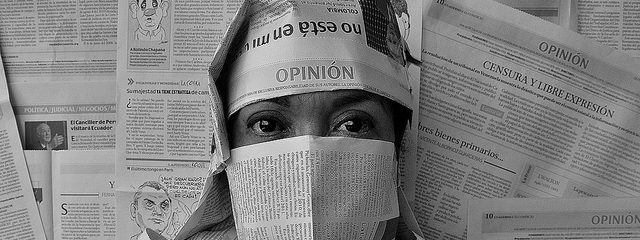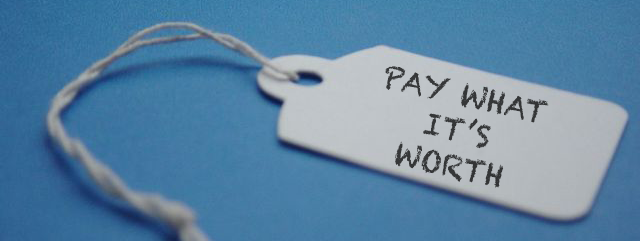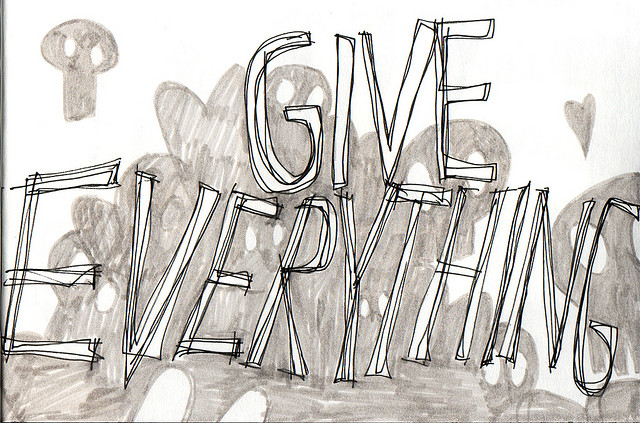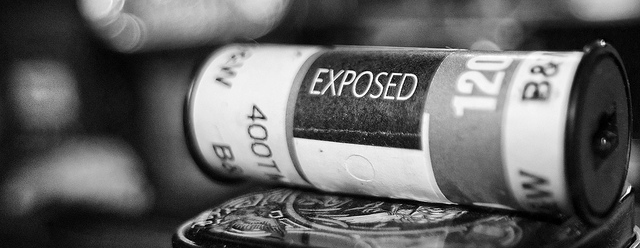
by Tara Joyce | Aug 29, 2014 | Cultural Creativity

People will always have their opinions. And some of them may be about you, and about your work.
An opinion is simply one person’s point of view, one person’s way of seeing things. It’s no stronger or weaker than any another perspective. It’s no more true or false. It’s simply one person’s judgement. Nothing more.
It’s the way in which one delivers their opinion and why, that allows their perspective to hold more weight or less. How do you deliver your perspective? And why do you present it? Within these answers lies the true value of the opinion.
Not everyone needs to like you, or your work. You need to like you, and your work. You need to be proud of what you accomplish and create for yourself. In holding this space, in honouring the value of your contributions and growth, you can see more clearly the value (or lack thereof) of another’s opinion.
The people who judge and criticize can and will. Because they need to — in the same way you need to create. That’s their stuff. And it has nothing to do with you, or your work. It’s their stuff when they need to highlight the embarrassment of others expressions. It’s their stuff when they demean those who are vulnerable enough to reveal themselves completely. The amount of truth and value that lies in their perspective is yours to determine.
The people who praise and support can and will. Because they need to — in the same way you need to create, and others need to criticize. Similarly, the amount of truth and value that lies in their perspective is yours to determine.
You make the choice to be who you are, to take risks, to be vulnerable and expressive, and you get to choose how you want to process and respond to the opinions’ others may have of this choice. Positive, neutral, and/or negative. With every opinion you receive, YOU have the power to determine the importance you give to it, and the person presenting it. All opinions are not created equal.
photo credit: Ahdieh Ashrafi

by Tara Joyce | Aug 20, 2014 | Cultural Creativity, My Journey | What's On My Mind, Self/Business Growth

When I feel I need to perform, my mind jumps to conclusions over and over about how YOU are interpreting and enjoying what I am doing or have done. Over and over I come up with negative judgements about what I have produced, and what YOU have decided.
I can’t be perfect. IT can’t be perfect. And yet I WANT (it) to be, and, in part, I feel I NEED (it) to be.
Maybe then SHE would be satisfied. I AM my own worst judge.
Perhaps, my conclusions will always happen. Perhaps, my mind, my inner critic, will always have something to say. But I DO have a choice in what I do with these conclusions SHE so easily jumps to.
In part, my judge and her conclusions support me in being focused on doing my best work. BUT when I actively court her conclusions, by giving ample space to them, they always stop me dead in my tracks.
SHE is a part of me, and perhaps I didn’t have a lot if choice in that, but I DO have choice in how much space is given for her to do the damage SHE requires. There is no reason my judge can’t simply be acknowledged, and then allowed to pass.
I see you. I hear you. Nothing more.
I don’t need to hide from her OR let her in. We can live in harmony. I can let her be who SHE is, without needing to attach to her words or thoughts. I can hear her and leave it at that.
You’re my paralyzing thinking, my harshest judge, and I am learning conclusion by conclusion how to live more peacefully with you.
photo credit: Hartwig HKD

by Tara Joyce | Aug 8, 2014 | Pay What It's Worth Pricing

Have you ever considered why you choose to set prices? For most of us, we set prices because we have been taught, and we believe, that if we do not, our customer will not pay fairly for the item of value we are selling. This feeling, of others not being willing to pay, is based upon the assumption of scarcity that permeates, and is the foundation of, our modern economy and economic theory. >> Read the rest of the article on Local Organics Food Co-ops Network‘s blog.
As my new book catalyzes me to be more public about my business model and pricing method, I’m receiving strong interest and support from individuals working in social responsible and/or sustainable businesses. I’m proud to share the above article with Ontario’s local and organic food co-op network.

by Tara Joyce | Aug 5, 2014 | Cultural Creativity, Pay What It's Worth Pricing

There’s always been something about the statement, “give freely, receive freely” that didn’t work for me, but I could never quite put my finger on it. The sentiment sounded so lovely, but I knew there was something I was missing. I needed to see beyond the freedom ideal, to the totality of the statement.
Have you ever been given something that is more work to receive than the value you place on it?
Have you ever been given something that came with conditions?
If I give freely, without restraint, I will receive freely, without restraint. But is giving, and receiving, in this way what’s best for me?
What I really need is to NOT be totally free. What I really need is to have some constraints. Because the truth is, sometimes, the thing I’m giving is something you’d benefit from NOT receiving.
Sometimes, I’m unbalanced in my giving. Sometimes, I give for the wrong reasons. You do not need to receive everything that I want to give you, just as I don’t need to receive everything that you want to give me. Sometimes, you and I give for the wrong reasons, and it’s important to honour this truth about ourselves.
I could leave myself open and free to receive whatever, and open and free to give it too, but I know that’s not what’s best for me. I could “give freely, receive freely” without bias, but then I wouldn’t be responsible to the whole truth of myself, and of you — that sometimes the things I want to give, you do not need; and sometimes the things you want for me to receive, I do not need. Sometimes, our giving isn’t helpful or generous.
So truly, giving freely does means receiving freely, and this includes exchanging all our “stuff” that would more responsibly be managed with more constraints, not less.
photo credit: Ari Moore

by Tara Joyce | Aug 4, 2014 | My Journey | What's On My Mind, Pay What It's Worth Pricing

I’ve never been so scared. I’ve never shown so much of myself before.
It might sound crazy to allow my customer to pay what it’s worth, but it feels far more crazy to proudly share the book I’ve written about it.
It’s so exposing. And at times, it feels like too much. Far more than I can handle. But then, I know it’s exactly what I can handle.
Generally, I don’t talk much about what I do, but I’m learning and seeing how I need to grow that. I need to share more of what’s in my heart, and not fear it. I need to share my work.
I fully intended to write a post each day last week but something wonderfully unexpected happened. The CBC (Canadian Broadcasting Company) called and asked if I would like to be interviewed by them about my ‘pricing’ approach. Of course, I agreed and on Thursday, I found myself taping 12 radio interviews that will and have aired throughout the country, from the Yukon to PEI. The last one, my 12th, was in Toronto (my hometown), live and in studio. The whole experience I can describe as crazy, amazing, and invigorating. And deeply, deeply tiring. I wasn’t able to keep up my posting.
I am exhausted. By birthing this book, by sharing it, by asking love ones — you, friends, family — to support me in publishing and printing it, but most strongly, by being seen more than I’ve ever been comfortable with. If you look, you can see so much of me. It feels crazy. Scary. Can I really be so safely exposed?
This, I think, has been my question — my BIG question — all along. Is it safe to so fully be seen as me?
photo credit: J. Noblitt










